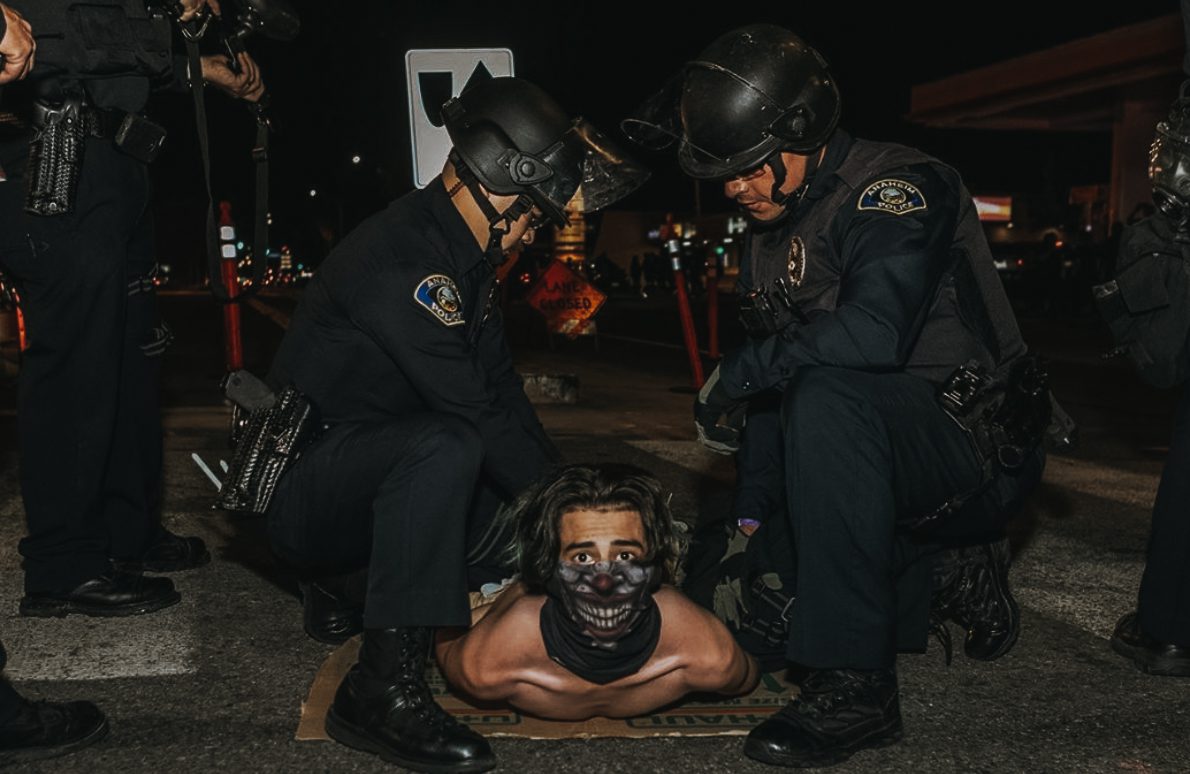One nation, indivisible, under God. A nifty statement, isn’t it? But, where has that gone? It has gone in the way of beatings, unwarranted arrests, profiling, harassing, and all too frequently, murder. In the wake of the events of the last few weeks, I was going to write that: “our fair city has seen its share of…” Then again, the concept of fairness is somewhat nebulous these days.
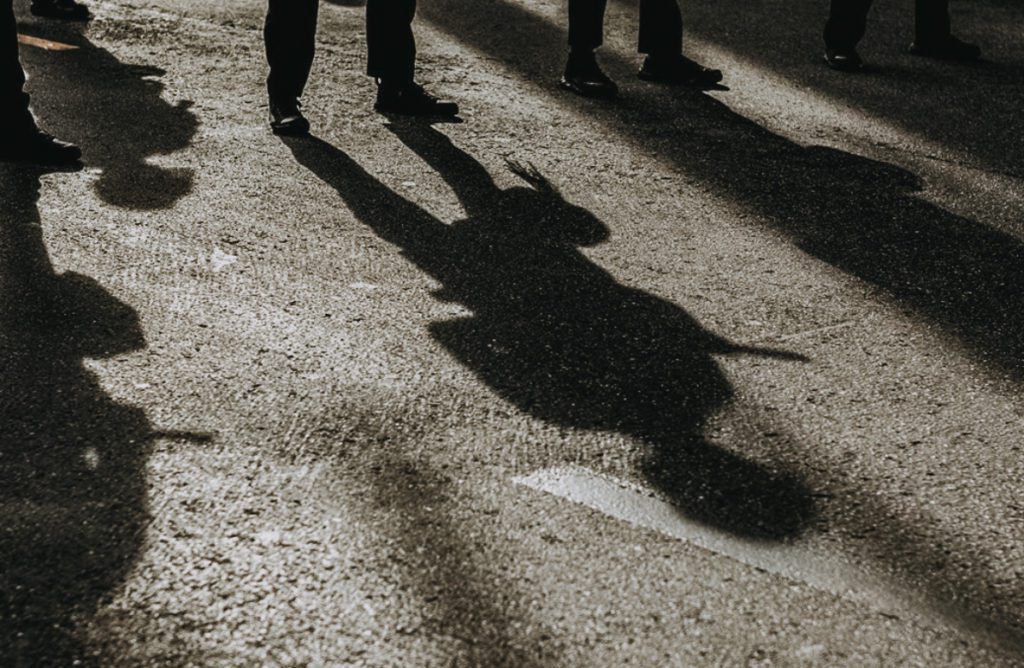
Racial injustice tends to be a trendy topic every time civil unrest occurs. In Los Angeles alone, we can point out to specific years; 1965, 1992, and now 2020. From the Watts riots, where entire neighborhoods were burned down as a result of a botched traffic stop by a white police officer, to the Rodney King incident, which again saw the city’s anger coming to a boiling point. Everyone still remembers the grainy video of several police officers beating a seemingly helpless man on the side of the freeway. The subsequent acquittal of those cops amidst what seemed like irrefutable evidence to convict them sparked the kind of unrest that looked oh-so-familiar to Los Angeles residents. After each one, we all say the right things. Martin Luther King Jr. and other civil rights leaders are endlessly quoted, white people pledge their support to the black community, and a big kumbaya session is played for the media. The result? Well… nothing. Everyone feels bad for a minute and go about our business as if everything is back to normal.
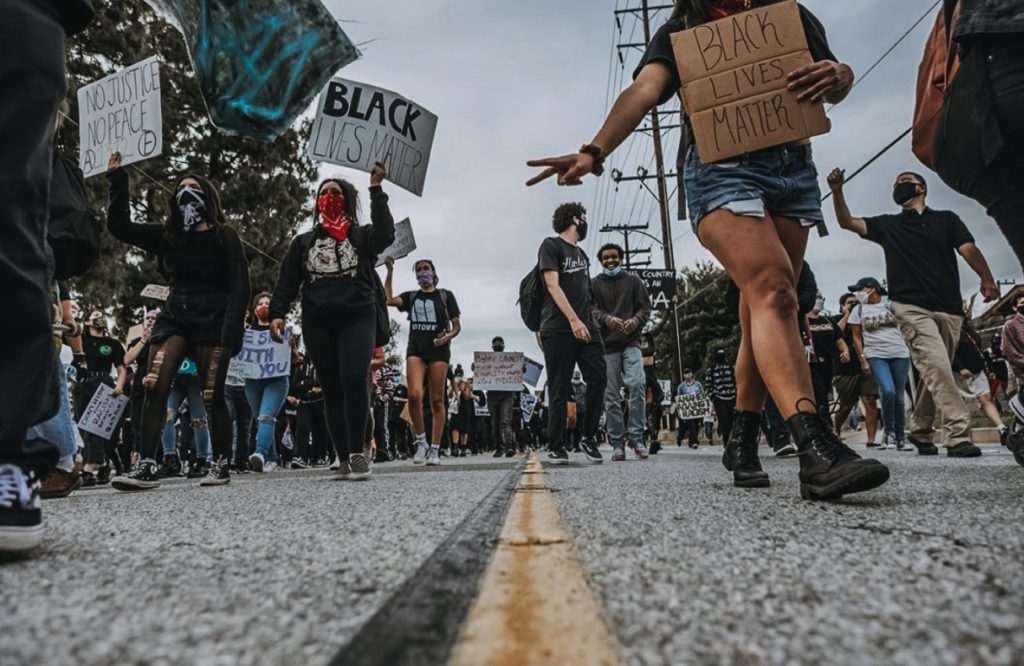
Meanwhile, neighborhoods burn, black businesses are destroyed, lives are changed irrevocably, and anger and resentment continue to build until the unavoidable next time. Not to worry, things are “discussed” in forums and the media, trite solutions are offered by people who have absolutely no clue on how things really work in those communities, and we ultimately go back to business as usual.
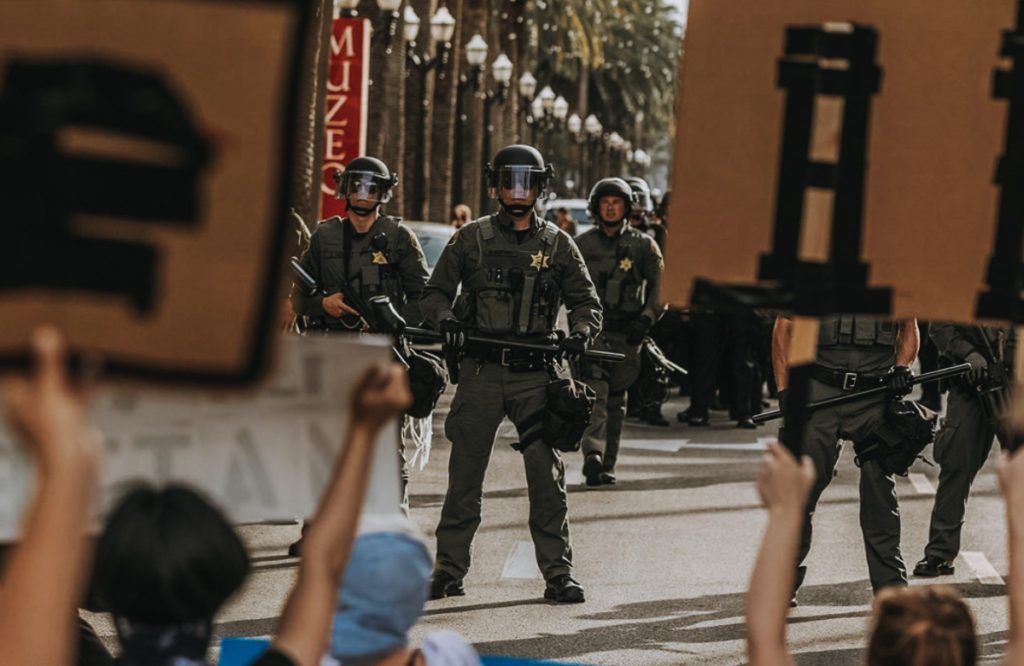
On Monday, May 25, 2020, George Floyd was arrested under suspicion of who the hell knows. Conjectures about what the offense indeed was (or wasn’t) abound, but the result is without a doubt. Floyd died after being slowly and sadistically strangled to death by now fired and arrested former police officer, Derek Chauvin. The grisly video of a grown man begging for his mother, his breath, his dignity, and his life was a hard thing to see. Harder still was the inaction of the other officers standing by like a bunch of idiots waiting for the man to stop moving. He did. It is not the first time, and sadly, will not be the last time that police officers react wrongly on the job. But this was on tape, and we watched. Watching a man die while begging for his life is something that I’ve had to explain to my seven-year-old daughter, who is already forming her idea about who police officers are. “Police officers hurt people, right, daddy?” I didn’t even know what to say. I am married to a Latina woman, born and raised here in Southern California, she is educated, smart, and accomplished. As we were watching endless hours of gavel-to-gavel coverage, she said something that stopped me in my tracks. “I don’t trust them; I never have.” In the ten years we’ve been together; I don’t know that I have been more surprised at anything that she had ever said. That is when it hit me. I am a middle-aged white man who has lived a reasonably comfortable life, eased by the privilege that has been bestowed to me upon birth. I didn’t do anything to earn this, but it is “fait accompli.” I don’t know what it is like to be a person of color in America. I don’t know what it feels like to be someone that “fits the description.” I have zero chances to be stopped on the street because I am wearing a hoodie (which I frequently do.) I am given the benefit of the doubt because of the color of my skin. I have trusted authority and the “system” because, well, that’s what you do if you grow up where I grew up in a lily-white neighborhood. We didn’t interact with black people because we simply didn’t see them (if there ever was a metaphor for what is happening…) I never thought of myself as having any prejudices, but I realize now that I was. It’s subtle; it’s not Klu Klux Klan rallies down the street, it’s the little things. It’s referring to an entire race of people as “them,” or the quiet whispering when someone with a large Afro shows up at the local diner. It’s the “some of my best friends are black” statement. Could you ever imagine saying, “some of my best friends are white?” It’s the appropriation of an entire people’s culture without acknowledging where it comes from, or maybe just a simple thank you. It’s the barely hidden hints from a president who wouldn’t know racial justice if Rosa Parks would come back from the dead and sit in his office. It’s the denial of real police reform, not the kind that makes the pundits pontificate for a bit on CNN or Fox, then gets forgotten during a pandemic. There have been talks of “systemic racism,” which has been permeating the highest levels of law enforcement, only to be met with skepticism by the National Security Adviser, who believes that there is no such thing. America is in denial, and it has been for many years.
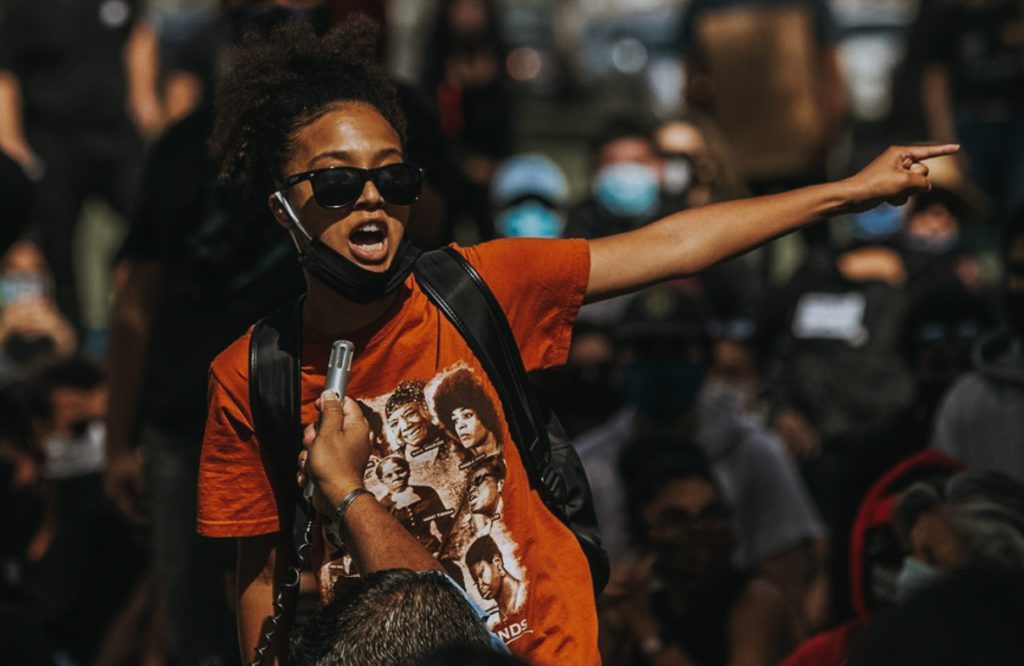
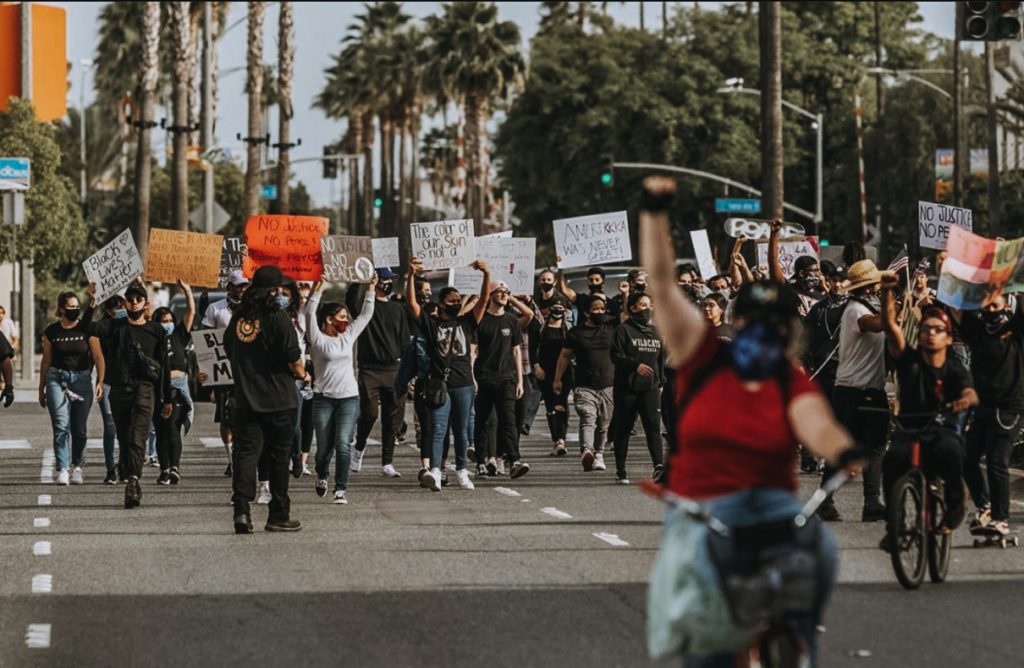
Black lives matter. But do they? Do they matter only when something terrible happens? Do they matter when it’s on camera? Do they matter when the community is so angry that it sees no other avenue than to respond in kind?
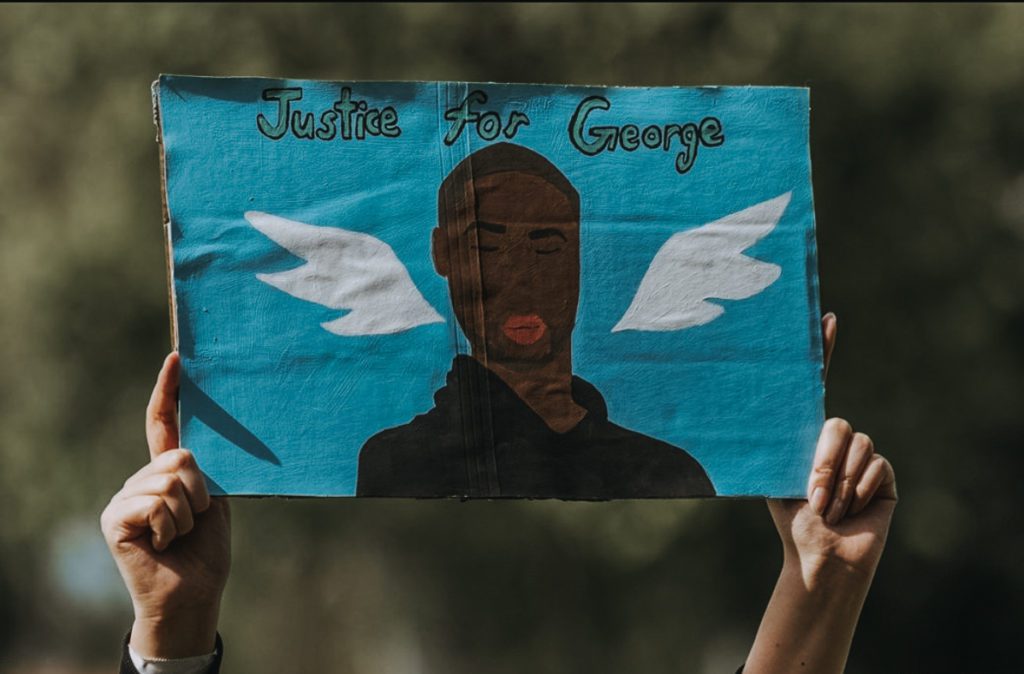
And so, we march, we protest, we shout, and we cry—we howl at the moon begging for answers which are likely not to come for a while. We want to close our eyes and look elsewhere, anywhere really that is not filled with images that make us uncomfortable. The country, still trying to recover from what will likely be the worst economic downturn in recent history, feels like on the verge of collapse, both financially and socially. The same old dance is now taking place. Endless analyses of the event will occur, including the patronizing explanation of the difference between a “peaceful” protest and a riot. We will quickly want to find fault or blame and wait for the inevitable controversial trial of the officers mentioned above, where, God help us, should this turn out to be another Rodney King verdict. I am tired already. But I have the luxury of being tired because I know that next week, I could write ten bad checks, and the only thing that would happen is a ding in my credit. The families of George Floyd, Ahmaud Arbery, Eric Gardner, and countless others don’t have that luxury. They will still be fearful for their lives every time they see a police car behind them. They will again teach their children about how to respond to a traffic stop with the “yes sir, no sir” and keep their hands on the steering wheel at all times for fear of being zapped, hit, or worse, shot. There is no such thing as racial equality, at least not now, and the pessimist in me thinks that it may not ever be.
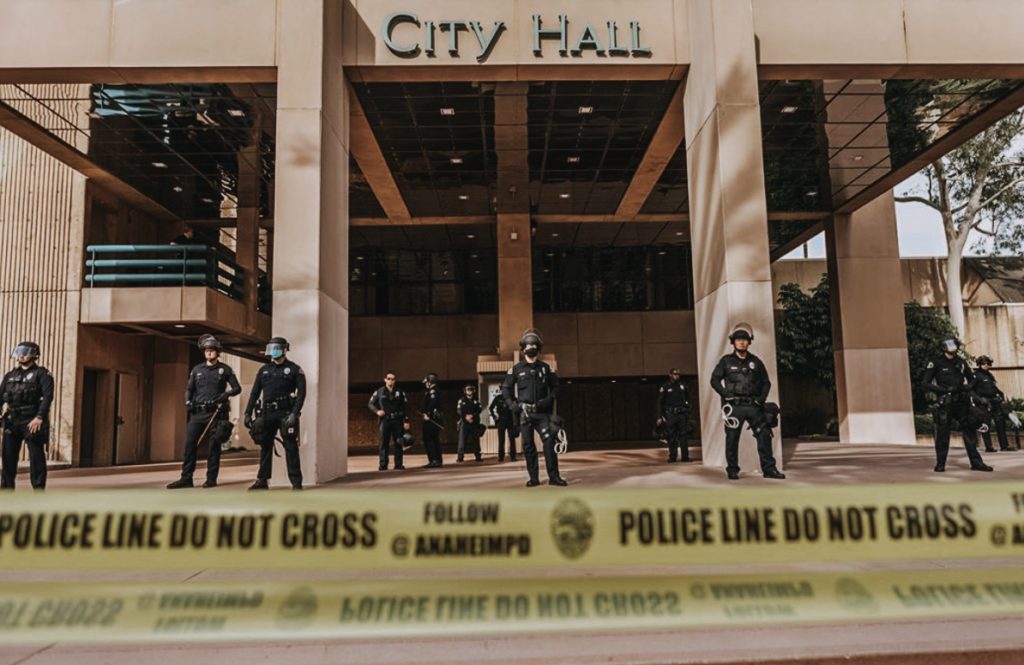
So, what do we do now? Do we keep talking, marching, and praying? Will this society allow for real change? The kind that pains, hurts, and ultimately transforms? Will we allow for this nation to become “indivisible” truly, or will we pay it lip service as we have done now for generations. Can we sit together at the table of brotherhood? Can we live up to the ideal of the Land of the Brave and Home of the Free? Because there sure hasn’t been anything brave or free about what we have done now for 400 years. We are going to need to do so because not being able to breathe will be the least of our issues.
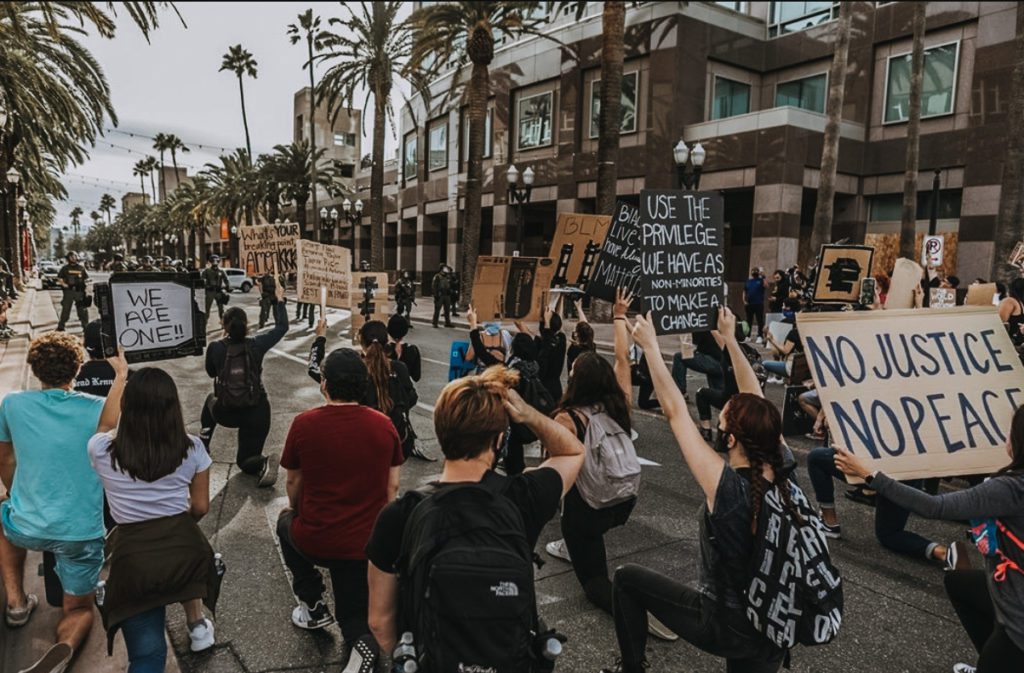
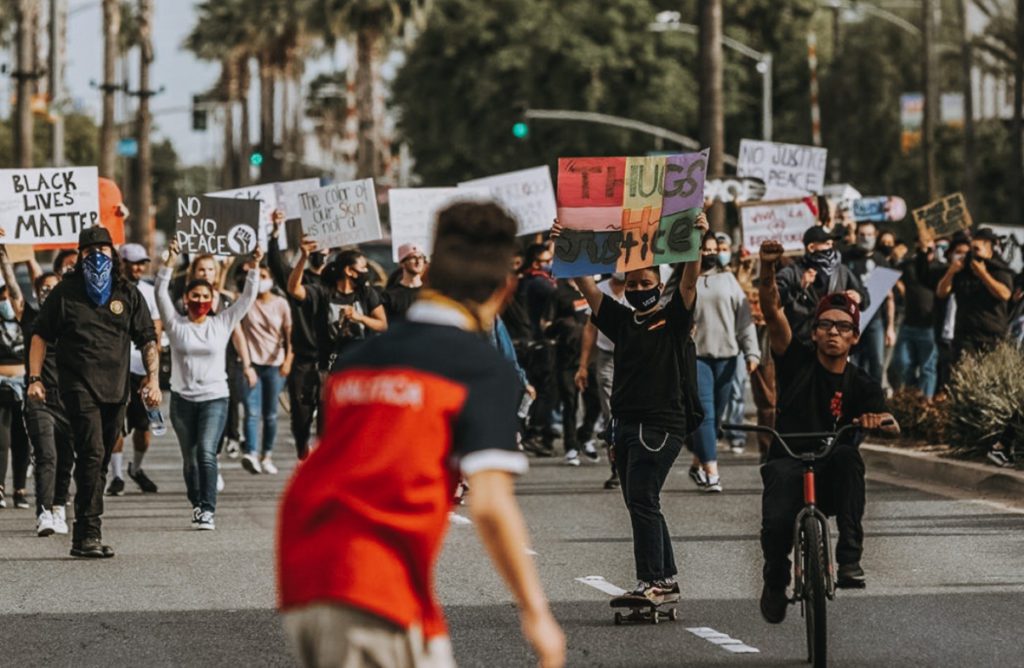
Photos by KEVIN WARN | G Social Images





